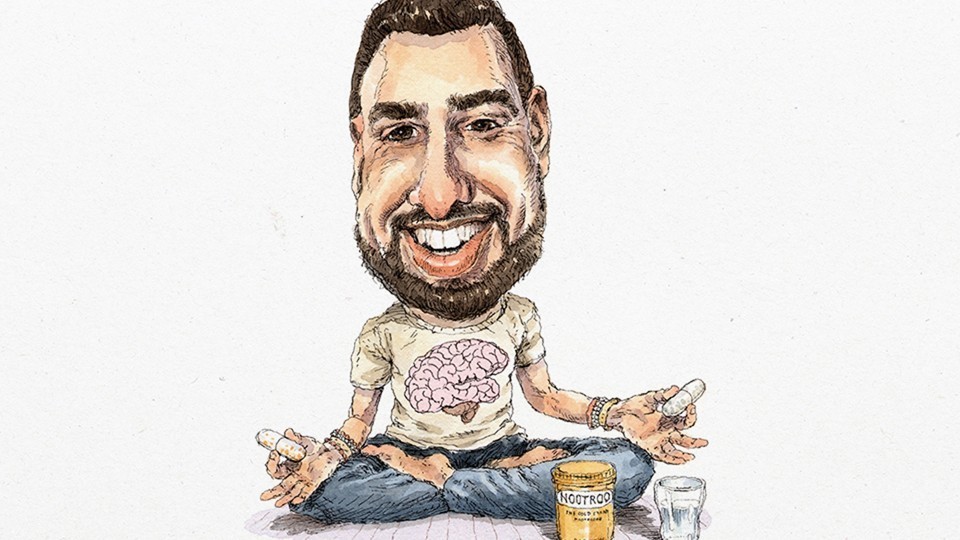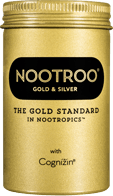
Nootroo was featured in a profile on our founder, Eric Matzner, in an article that appeared in the 2016 print edition of The Atlantic, titled “The Brain Bro.” In the article, the journalist shadows Eric for a few days and writes a story about what it is like to be a biohacker in San Francisco.
On philosophy of enhancement:
“Look to how you can optimize yourself,” Matzner said, using one of his favorite verbs. “The body offers plenty of weaknesses that can potentially be overcome.” Midway through the presentation, he unleashed one of his favorite theories: “If somebody invented a drug that improved the brains of the world’s 10 million scientists by 1 percent,” Matzner said, paraphrasing the Swedish philosopher Nick Bostrom, “it would be like creating 100,000 new scientists.”
On how Eric discovered nootropics:
“At first, he turned to prescription medications, including amphetamines and modafinil (also marketed as Provigil), an anti-narcolepsy drug. But he soon realized that what he needed was not simply wakefulness so much as the ability to learn faster. He switched to piracetam and, after noticing improvements in his attention span and reaction time, joined online nootropics communities in an effort to hone his “stack.”
On Eric’s lifestyle:
For many users, nootropics are not just a productivity tool; they’re part of a holistic journey toward perfection of the mind, body, and soul. According to Matzner, Nootroo confers its greatest benefits as part of a broader “protocol” that includes meditation, exercise, and eating “clean.” He consumes an extremely high-fat, low-carb, ketogenic diet; meditates; and tracks his sleep.”
On describing the first public demo of the Meditation Battle League (MBL):
“At the end of the Meetup event, Matzner put his Nootroo-fueled lifestyle to the test via a meditation competition. (“How HARD can you relax?” the event page had inquired.) Wearing EEG headbands, pairs of contestants would meditate while the audience tried to distract them with heckling. The devices would measure electrical activity emitted by the meditators’ brains and project scores, based on their levels of calm, on a giant screen. Whoever remained in a meditative state the longest would win.
Matzner signed me up. I lost my round and got the lowest score of anyone participating…
When Matzner’s turn came, he plopped down in a folding chair. His eyelids fluttered shut, and as his brain jolted toward tranquility, he pursed his lips and breathed out. For a while, he and his opponent were neck and neck, brain to brain. But then Matzner pulled ahead.
The crowd counted down the final seconds in unison. Matzner opened his eyes, slid off his headband, and smiled. Optimization accomplished.
He’d won, 1,339 to 779.
